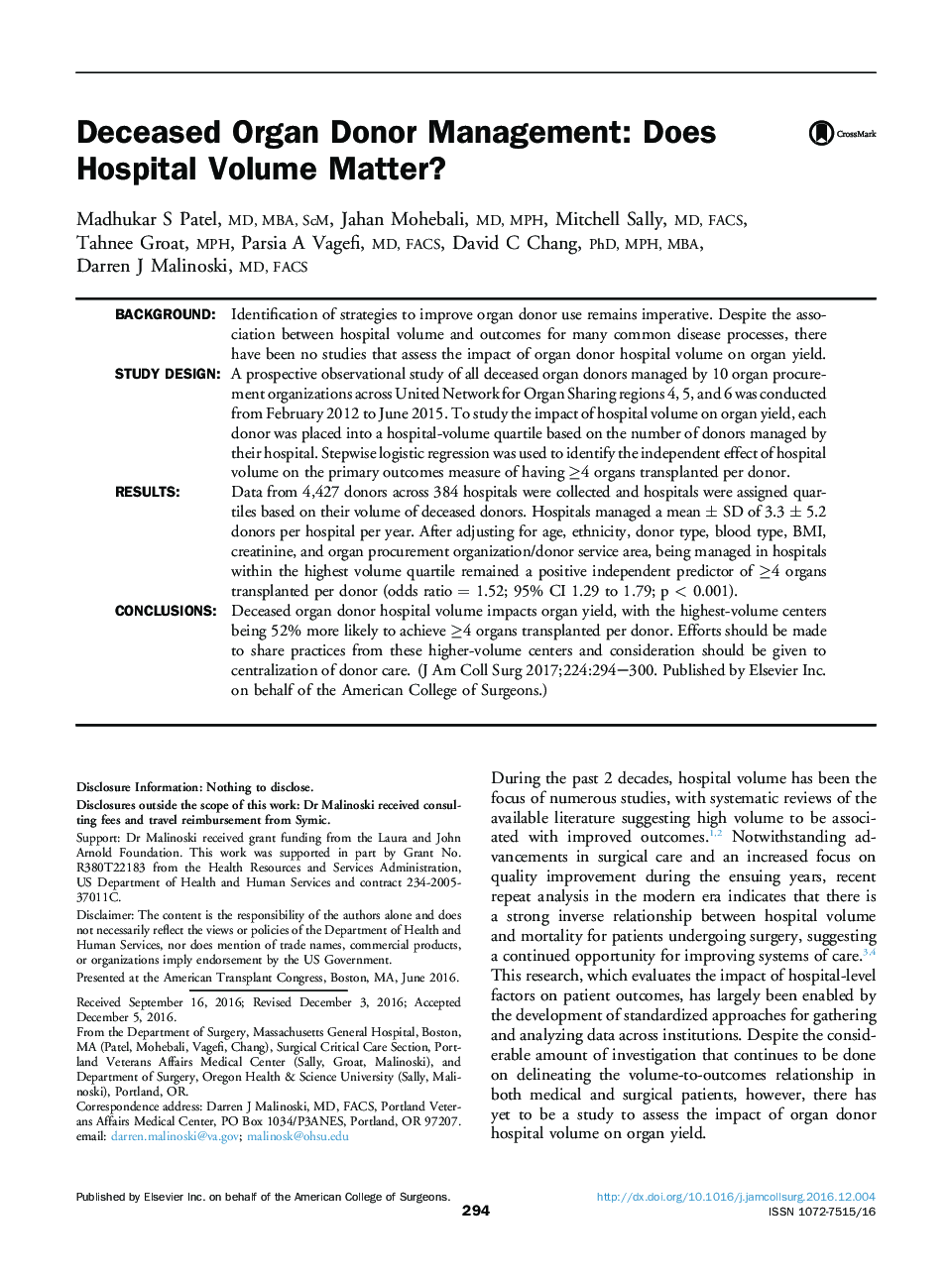| Article ID | Journal | Published Year | Pages | File Type |
|---|---|---|---|---|
| 5733143 | Journal of the American College of Surgeons | 2017 | 7 Pages |
BackgroundIdentification of strategies to improve organ donor use remains imperative. Despite the association between hospital volume and outcomes for many common disease processes, there have been no studies that assess the impact of organ donor hospital volume on organ yield.Study DesignA prospective observational study of all deceased organ donors managed by 10 organ procurement organizations across United Network for Organ Sharing regions 4, 5, and 6 was conducted from February 2012 to June 2015. To study the impact of hospital volume on organ yield, each donor was placed into a hospital-volume quartile based on the number of donors managed by their hospital. Stepwise logistic regression was used to identify the independent effect of hospital volume on the primary outcomes measure of having â¥4 organs transplanted per donor.ResultsData from 4,427 donors across 384 hospitals were collected and hospitals were assigned quartiles based on their volume of deceased donors. Hospitals managed a mean ± SD of 3.3 ± 5.2 donors per hospital per year. After adjusting for age, ethnicity, donor type, blood type, BMI, creatinine, and organ procurement organization/donor service area, being managed in hospitals within the highest volume quartile remained a positive independent predictor of â¥4 organs transplanted per donor (odds ratio = 1.52; 95% CI 1.29 to 1.79; p < 0.001).ConclusionsDeceased organ donor hospital volume impacts organ yield, with the highest-volume centers being 52% more likely to achieve â¥4 organs transplanted per donor. Efforts should be made to share practices from these higher-volume centers and consideration should be given to centralization of donor care.
